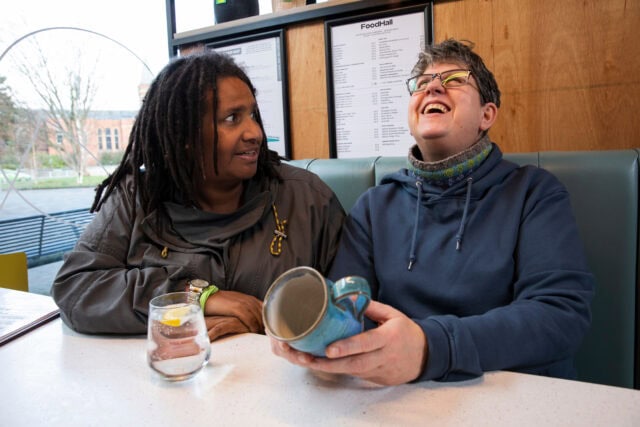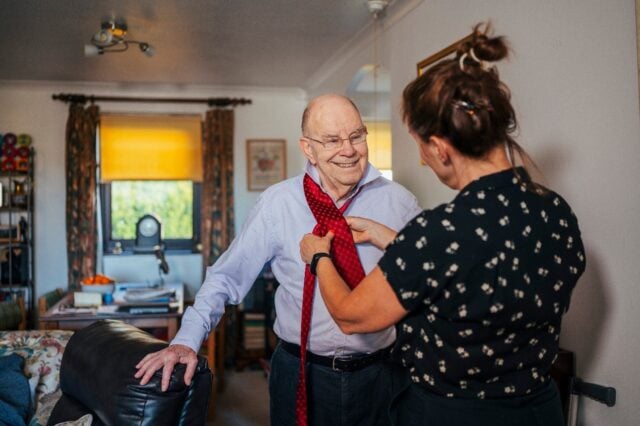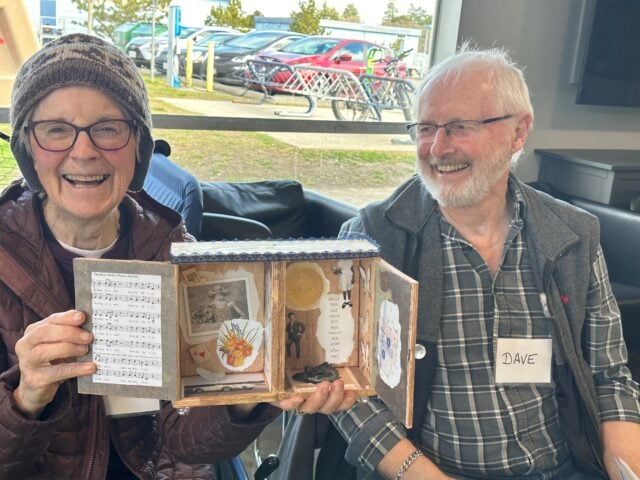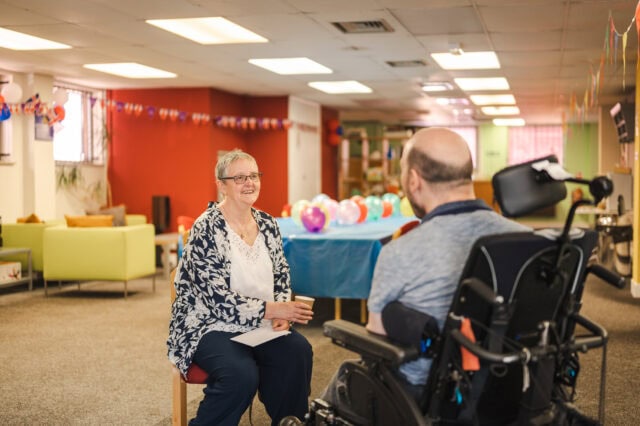By Leslie Udell

Photo by Nathan Anderson on Unsplash.
Canada’s national dementia strategy, released in 2019, recognizes that people with an intellectual disability are at a higher risk of developing dementia and face many barriers to equitable access to supports and services related to dementia. Research shows that adults with Down syndrome have a much higher risk of young onset Alzheimer disease and rapid deterioration than is seen in the general population or in other individuals with an intellectual disability. There is also some evidence that adults with an intellectual disability, who do not have Down syndrome, may also have a slightly higher risk of dementia than the general population.
Adults with intellectual disabilities often continue to live with their family members, some of whom are parents who are also experiencing aging related issues. They may also be living on their own, with a significant other or roommate or in a group living arrangement with several housemates. Considering the impact of dementia on adults with an intellectual disability, organizations providing disability supports, families and organizations serving seniors have identified a significant need for information on how to provide quality care for this population.
As in the general population, caregivers of adults with an intellectual disability impacted by dementia have recognized that one of their significant challenges is knowing how to provide support when dealing with responsive behaviours. People within the disability sector often have little knowledge about dementia while the senior’s sector tends to be unfamiliar with the needs of people with an intellectual disability. This lack of awareness means neither group is implementing well established approaches to cope with responsive behaviours. Evidence from dementia-capable agencies supporting adults with intellectual disabilities, establishes the importance of utilizing these strategies as part of their person-centered care.
As with all individuals who are impacted by dementia, adults with an intellectual disability may not express all possible responsive behaviours but they will certainly be impacted by at least some of them. Caregivers require a toolbox of general information about possible reasons for these behaviours, how to identify triggers and then implement approaches that may help alleviate anxiety and distress. Many caregivers have also requested that they be provided with information and resources that can be accessed virtually and in short intervals of time.
In reviewing the Behaviours in Dementia Toolkit there are several resources that offer great information on responsive behaviours that meet the criteria preferred by many caregivers. I recommend:
1. What are responsive behaviors? video:
https://carechannel.elizz.com/resources/what-are-responsive-behaviors
This video covers key topics like keeping yourself safe, removing triggers and shifting your point of view. The video is short and to the point, while touching on important pieces of information and caregivers could quickly pick out great pointers.
2. Behavioural, emotional, and psychiatric symptoms in dementia – an e-learning course
This is a short e-learning course that offers lost of great basic information. Over and above the actual course materials there are additional videos and even apps that can assist caregivers in finding positive ways to respond to responsive behaviours.
3. Hallucinations, delusions and/or paranoia: Handout for individuals and caregivers
Hallucinations, delusions and paranoia can be difficult to support and the tendency is to correct people or think the individual is purposefully “lying”. This resource clearly outlines positive strategies to help with these challenges.
_ _ _

Leslie Udell has over 35 years of experience in the provision of dementia-capable supports for adults with an intellectual disability. She is also a member of the NTG Canadian Consortium, providing training in dementia supports for adults with an intellectual disability and a co-author of the “Canadian Guide to Community Care and Supports for Adults with Intellectual Disabilities Affected by Dementia”. This resource is available via Reena’s website: https://reena.org/initiatives/dementia-strategy-project/ or the NTG Canadian Consortium website: https://www.the-ntg.org/canadian-consortium-news
Would you like to curate a resource list for the Behaviours in Dementia Toolkit? Reach out to CCSMH knowledge broker Nick Ubels at [email protected]





